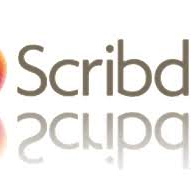(Just a note, this post is from our archives. Some references and links may be from past years.)
Just recently, PW published an article in which agents shared their thoughts on children’s books and YA trends. Although I’m quite tickled that so many agents are seeing lots of submissions featuring diverse characters, it’s dangerous to consider diversity the latest YA trend.
I’m sure I’m not the only agent who can say they’ve been repping diverse authors/books since day one. It certainly didn’t take a trend for me to sign those books and authors (for example, Kelly Parra’s awesome MTV Book Graffiti Girl in 2007, Kim Reid’s memoir No Place Safe in 2007, and Simone Elkeles’s Perfect Chemistry in 2008). But I can say this: unequivocally, before #WeNeedDiverseBooks became a rallying cry in April 2014, selling in a diverse author/book was tons harder to do. I have my submission logs to prove it. It often took me about 12 to 16 months of grim determination to find a diverse book a home.
If diversity is now hot enough to make the selling-in part a lot of easier, trust me, I’m all for it. Yay! Finally! But I absolutely do not want diversity to be considered a trend in young-adult literature, and here is why: If something is a trend, then it can go out of fashion just as quickly as it came in. And quite frankly, that would be a travesty.
The blunt truth is that selling a diverse book is a perfectly normal thing to do in publishing. So my rallying cry? Agents, new and old, even when diverse books become harder to sell, as they inevitably will (in publishing, trends of every kind have always come and gone), keep on keeping on.
Diversity is not a trend. It’s simply here to stay. This is the new normal.
Photo Credit: Ahmed Alkaisi












